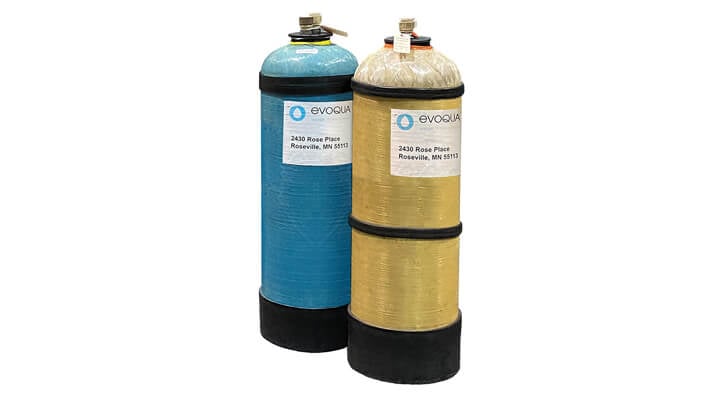Challenge
Regional drought conditions prompted a large west coast printed circuit board manufacturer to investigate the potential for wastewater recovery and reuse in the face of their facility’s water shortage. The manufacturer contacted Evoqua Water Technologies for a turnkey solution to keep production running.
Printed circuit boards are integral in most electronic items used in everyday life. The vast majority are manufactured by bonding a layer of copper over a substrate board and removing the unwanted copper via chemical etch to reveal a circuit pattern specific for the design of the final product. After another layer of substrate is added to finish the base board, the manufacturer will then plate the exposed copper connections with a tin-lead alloy or with new RoHS compliant lead-free compounds made of tin, copper, nickel and germanium. To complete the boards, they are further populated with electronic components to form a final functional assembly that can interconnect with microprocessors, display screens and the power supply.
These component connections are electrically and mechanically fixed to a base circuit board, by using a flux to prepare joints, and then soldered with molten metal. Flux and other impurities are removed from the boards in a wash step that produces wastewater containing surfactants and metals such as copper, lead and tin, which require additional treatment before discharge and/or recycle.
Solution
Evoqua evaluated water usage at the manufacturing facility and determined that up to 90% of the water used in the board population process was easily recyclable. Evoqua recommended wastewater ion exchange (WWIX) services to effectively treat the waste rinsewater for reuse in the facility.
Wastewater ion exchange is a service-based option that utilizes ion exchange resins and other media to remove specific ionic contaminants from groundwater, industrial wastewater and process water for discharge or recycle. DOT-compliant vessels containing the selected resin or media treat the water until their capacity is reached. Once exhausted, the WWIX vessels are removed and replaced with fresh resin and/or media vessels. Exhausted resin vessels are returned to Evoqua’s processing facility where the contaminants are removed and the resulting waste residuals are recovered. Flexibility plays an important role in these systems, as they can be implemented on an “as needed” basis, should feedwater availability become an issue.
Results
Evoqua provided a turnkey solution with WWIX exchange vessels containing 3.6 cubic feet of mixed bed resin to recycle the process rinse baths. This effectively reduced the demand on the feed water, allowing the customer to maintain production despite water shortages in the area. Offsite regeneration of the spent mixed bed resin at Evoqua’s RCRA facility provided the customer with the advantages of simple operation, minimal waste handling and ease of compliance with RCRA regulations while also recovering hazardous metals.
